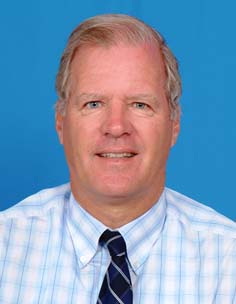BBIC Interview with Nick Pattison
 As part of the TKM - Ernst & Young Big Business Idea Competition (www.kom.om/bbic) we will be running a series of weekly interviews with the Competition's organizers, supporters and judging panel - they'll be talking about the start-up culture and its importance to Oman's growing knowledge-based economy, innovation, entrepreneurship and how to spot the next big thing. Nick Pattison (pictured left) of Networking Engineering Services and a BBIC judge kicks off the series.
As part of the TKM - Ernst & Young Big Business Idea Competition (www.kom.om/bbic) we will be running a series of weekly interviews with the Competition's organizers, supporters and judging panel - they'll be talking about the start-up culture and its importance to Oman's growing knowledge-based economy, innovation, entrepreneurship and how to spot the next big thing. Nick Pattison (pictured left) of Networking Engineering Services and a BBIC judge kicks off the series.
Q: Would you mind giving us an overview of Network Engineering Services (NES)?
A: NES is a small company that specialises in technology, mainly in the telecoms area but also increasingly in the e-commerce field.
Q: Why have you become involved in the TKM – Ernst & Young Big Business Idea Competition?
A: A healthy business climate means a healthy economy. Anything and anyone who is encouraging this has my vote and absolute support.
Q: How important are start-ups to Oman’s economy?
A: In one word… Vital! SMEs form the engine of a thriving economy and business start-ups form the nucleus of SMEs. A World Bank report recently emphasized this. The Government of Oman has already created the necessary framework to encourage enterprise. Now those of us who care and can contribute need to help Omanis take advantage, in a structured and professional way, of this attractive business climate
Q: What personal experience do you have of the start-up culture?
A: In my previous life as a Shell employee I have personally been involved with many start-ups in a number of countries: principally amongst contractors.
Q: What characteristics do you need to be a successful entrepreneur?
A: Not the flamboyant ones that people always comment upon! It’s a tough environment so you have to be tough and persistent and you also need to plan, plan, plan. Who would climb Mount Everest without thoroughly planning for every eventuality?
Q: Which international entrepreneur has inspired you and why?
A: Freddie Laker. He started the cheap flight business back in the 1970s and found himself up against some frightening vested interests - mostly countries since airlines in those days were often state-owned.
Q: What are the key ingredients for a successful start-up?
A: You need a product that people want, some good market research, a good business plan that is strong enough to convince the banks of the strength and quality of the business, a credible understanding of the requirement for working capital and as I mentioned before some seriously good planning.
Q: How could the region’s banking community improve the services they provide to start-ups?
A: Banks don’t take risks. They should be prepared to take risks, even if it means reflecting that in the borrowing rates and they should provide advice and support. Too often once the loan has been made they simply wait for it to be paid back.
A: I declare an interest here. Shell will shortly launch a Fund for businesses who would normally find it difficult to borrow from banks. The Fund will start with a payment of US$10 million (Shell’s Gift to the Nation to celebrate the 35 years since His Majesty’s accession to the throne) which is designed to stimulate the formation of successful SMEs. Managed by South Africa’s GroFin, the emphasis will be on mentoring and support, areas that GroFin has a lot of experience with.
Q: What are the drawbacks to being an entrepreneur?
A: An entrepreneur by definition is a risk-taker. That in itself can lead to lows and well as highs. Further he/she has to dedicate most of their waking hours to get a business off the ground. This is not easy given social obligations.
Q: What do you think the dotcom has done for enterprise and innovation?
A: It allows anyone access to an incredible range of information and trends. Its importance cannot be over-rated
Q: How do you recognize the next big thing?
A: In Oman? You’re lucky, it’s easy. Be a copycat: see what is happening elsewhere and if you feel it would work here, have a go. Also look at the big developments in, for example, Sohar. Go and talk to them and see what they need in the way of support services.